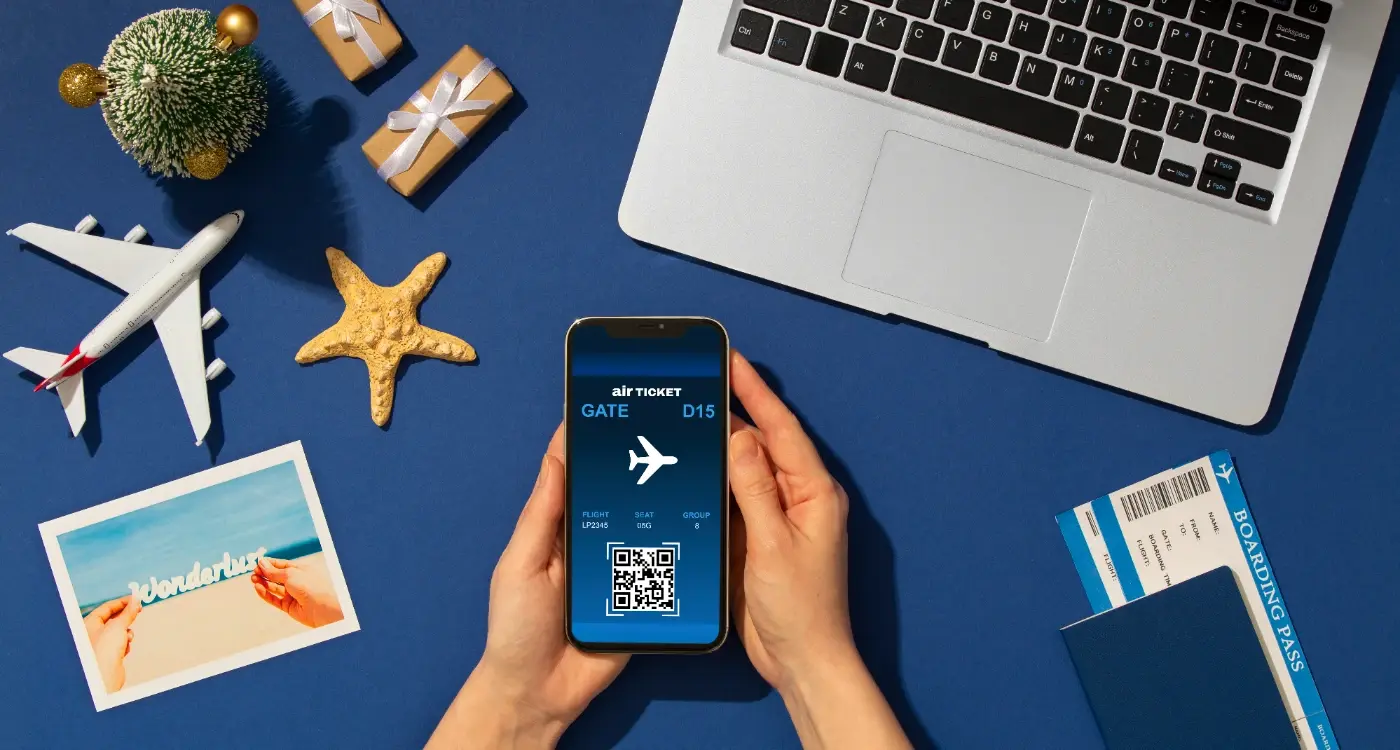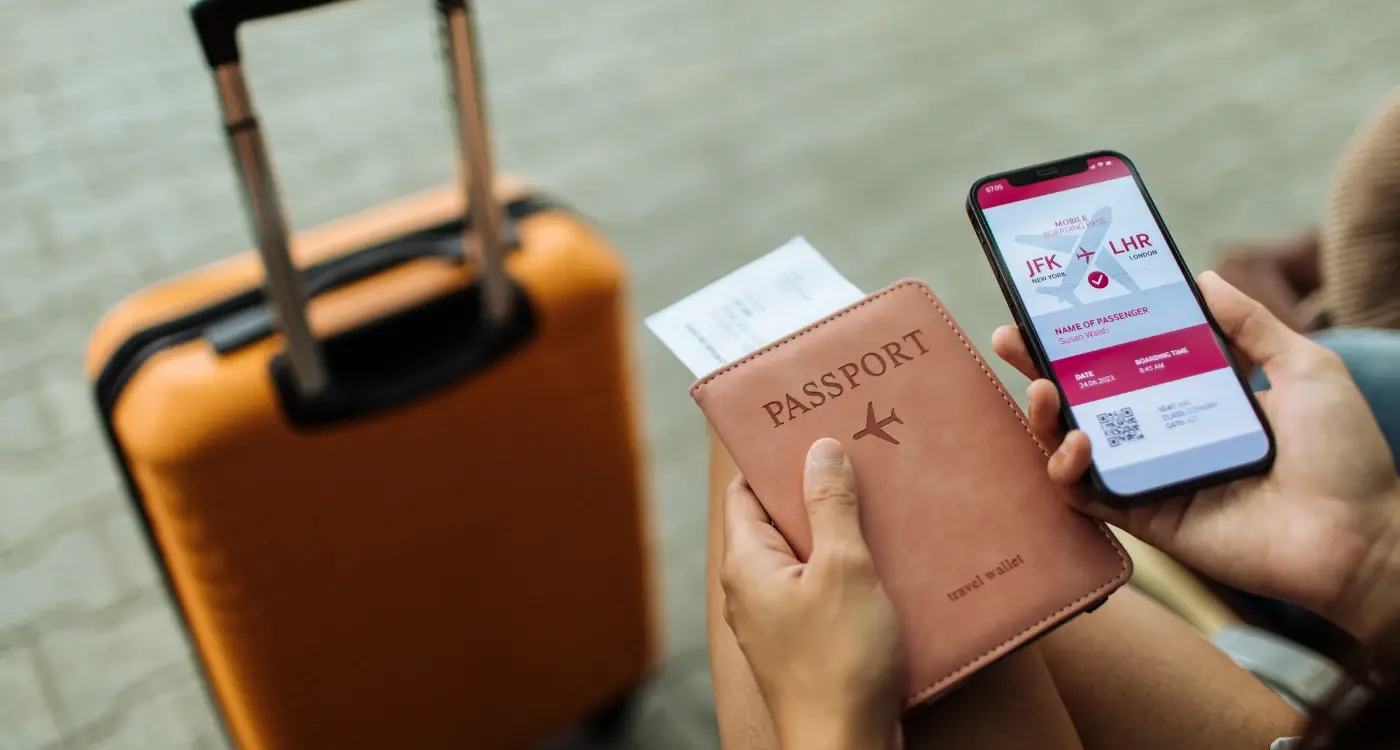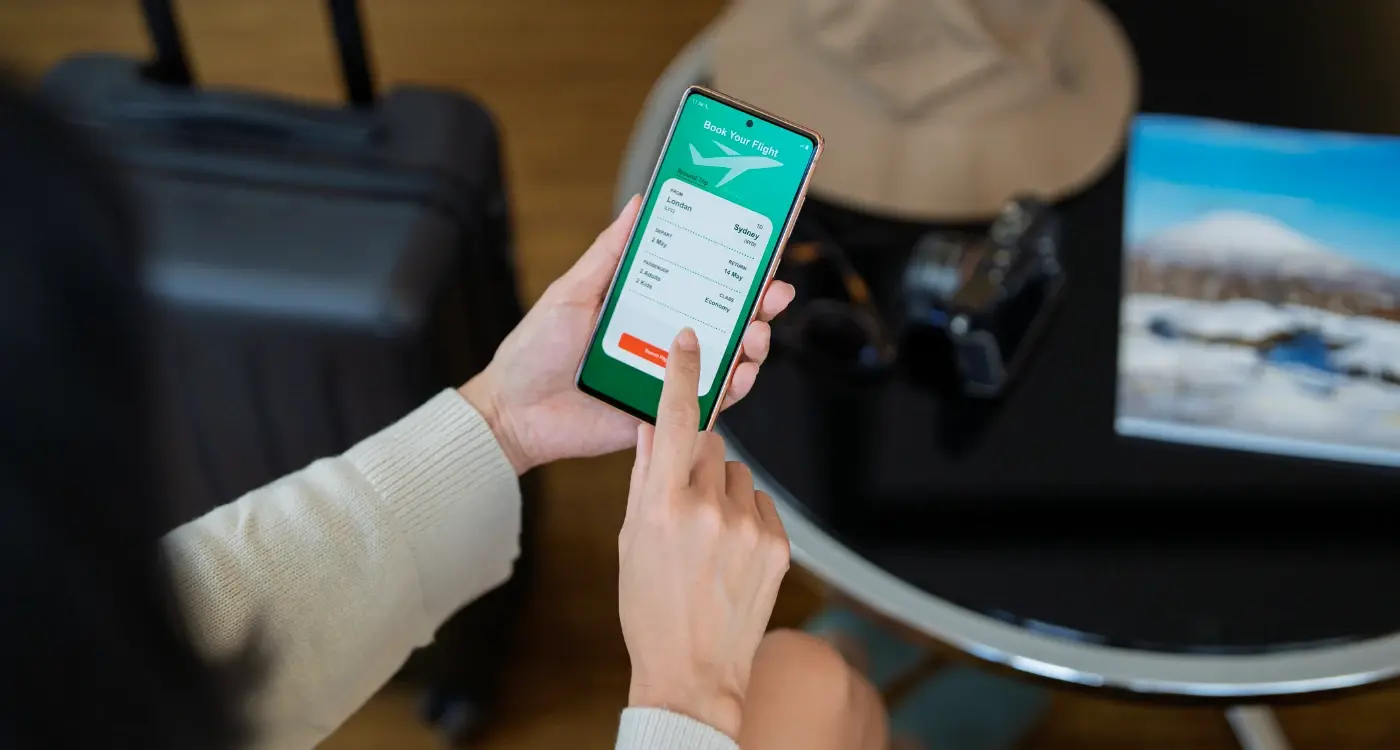How Much Does It Cost To Build A Travel App Like Booking.com?
The travel booking app market generates over £600 billion annually, with Booking.com sitting at the top as one of the most successful platforms ever built. But here's what catches most people off guard—creating a similar app isn't just about copying what you see on the surface. The real complexity lies beneath, in the intricate web of systems, integrations, and infrastructure that makes those seamless hotel bookings possible.
When business owners approach us about building a travel app, they often underestimate the scope. They see Booking.com's clean interface and assume it's straightforward to replicate. What they don't see is the massive backend operation handling millions of properties, real-time availability updates, payment processing across dozens of countries, and customer support in multiple languages. That's where the real app development costs hide.
Building a travel app like Booking.com isn't just about creating an app—you're building an entire ecosystem that connects travellers, hotels, payment processors, and booking systems across the globe.
Throughout this guide, we'll break down exactly what goes into building a travel booking app and what each component costs. From the user-facing features to the complex backend systems, we'll give you realistic figures based on real projects. No sugar-coating, no hidden surprises—just honest numbers that will help you plan your budget properly.
Understanding Booking.com's App Features and Complexity
I've worked on plenty of travel apps over the years, and let me tell you—Booking.com isn't just another booking platform. It's a massive ecosystem that handles millions of searches, bookings, and user interactions every single day. When people ask me about building something similar, I always start by explaining just how complex this beast really is.
At its core, Booking.com does three main things: it lets you search for accommodation, compare prices, and make bookings. Sounds simple, right? Wrong. Behind that clean interface lies a web of features that would make your head spin. We're talking about real-time availability checks across thousands of hotels, dynamic pricing that changes by the minute, multi-language support for dozens of countries, and payment processing that works with every major currency you can think of.
The Search Experience
The search functionality alone is mind-boggling. Users can filter by price, location, amenities, guest ratings, and about fifty other criteria. The app has to process all of this instantly whilst showing accurate results. Then there's the map integration, photo galleries, and those handy little features like "free cancellation" badges that users love.
User Accounts and Personalisation
Every user gets a personalised experience based on their search history, previous bookings, and preferences. The app remembers your favourite destinations, suggests similar properties, and even sends push notifications about price drops. That's some serious data processing happening behind the scenes.
Breaking Down Development Costs by App Components
When I'm explaining app development costs to clients, I always start with the components—think of them as the building blocks that make up your travel app. Each piece has its own price tag, and understanding these individual costs helps you make smarter decisions about where to spend your budget.
The user interface and basic functionality typically account for about 30-40% of your total development cost. This includes everything users see and touch: login screens, search filters, booking forms, and payment processing. For a Booking.com-style app, you're looking at roughly £15,000-£25,000 just for the frontend work.
Core Component Breakdown
- User authentication and profiles: £3,000-£5,000
- Search and filtering system: £8,000-£12,000
- Booking and payment integration: £6,000-£10,000
- Reviews and ratings system: £4,000-£7,000
- Push notifications: £2,000-£4,000
- Admin dashboard: £5,000-£8,000
The backend infrastructure—where all the magic happens behind the scenes—usually costs another £20,000-£35,000. This covers your database setup, server architecture, and the complex algorithms that power search results and booking management.
Start with your most important features first. You don't need every bell and whistle from day one; focus on what makes your app actually useful to travellers and build from there.
Design Requirements and User Experience Considerations
When building a travel app like Booking.com, the design isn't just about making things look pretty—it's about creating an experience that actually works for real people booking real trips. I've watched countless travel apps fail because they focused too much on flashy animations and forgot that someone might be trying to book a hotel room whilst running through an airport with terrible wifi.
The design budget for a travel app typically runs between £15,000 and £40,000, depending on how many screens you need and how complex the user journeys become. You'll need designs for search results, property listings, booking flows, user profiles, and payment screens. Each one needs to work perfectly on both phones and tablets.
Search and Discovery Design
The search function is where most users will spend their time, so it needs to be absolutely spot-on. Your designers need to think about how people actually search for accommodation—some know exactly what they want, others are just browsing. The interface should handle both types of users without making either group feel lost.
Booking Flow Optimisation
The booking process is where you'll either make or lose money. Every extra tap or confusing step costs you bookings. Your design team needs to strip away anything that doesn't directly help someone complete their purchase. This means lots of testing with real users and multiple design iterations.
Technical Infrastructure and Backend Development
The backend is where the real magic happens—and where costs can spiral quickly if you're not careful. Building a travel app like Booking.com requires serious server infrastructure that can handle thousands of users searching for hotels simultaneously. We're talking about database management systems, cloud hosting, and server architecture that needs to be rock-solid reliable.
Your backend development team will need to build APIs that connect to hotel booking systems, payment processors, and user management systems. The complexity here is enormous; you're not just storing user profiles, you're managing real-time inventory, pricing updates, and booking confirmations across thousands of properties worldwide.
Database Architecture Costs
A robust database setup typically costs between £15,000-£40,000 to develop properly. This includes user data storage, property listings, booking history, and search functionality that can filter through millions of records in seconds.
Cloud Infrastructure
The backend infrastructure alone can account for 35-45% of your total app development cost, making it one of the most significant investments you'll make.
Monthly cloud hosting costs start around £2,000-£5,000 for a basic setup, but can easily reach £10,000+ as your user base grows. Amazon Web Services, Google Cloud, or Microsoft Azure are your main options—each with different pricing structures and capabilities that affect your long-term development budget.
Third-Party Integrations and API Costs
Building a travel app like Booking.com isn't just about creating your own features—you'll need to connect with loads of external services to make everything work properly. Think of it like building a house; you need electricity, water, and gas from different companies to make it liveable.
Payment Processing and Maps
Payment gateways like Stripe or PayPal typically charge between 2-3% per transaction plus a small fixed fee. For a travel app processing thousands of bookings, this adds up quickly. Google Maps API costs around £4-7 per 1,000 map loads, and trust me, users will be checking maps constantly when planning trips.
Hotel and Flight Data
Here's where things get expensive. Hotel booking APIs from companies like Expedia or Amadeus can cost anywhere from £10,000 to £50,000 just for setup, plus ongoing fees for each search and booking. Flight data APIs are similarly priced—sometimes even more expensive depending on the provider.
Don't forget about smaller integrations either. Weather APIs, currency conversion services, and translation tools might seem cheap individually (often £20-100 per month), but they all add up. I've seen travel app budgets where third-party integration costs ended up being 30-40% of the total development expense. Budget at least £15,000-30,000 for initial API setup and first-year usage for a comprehensive travel app.
Development Timeline and Team Structure
Building a travel app like Booking.com isn't something you can knock out over a weekend—we're talking about a serious development project that'll take months to complete properly. From my experience working with complex booking platforms, you're looking at anywhere from 6 to 12 months for a decent MVP, depending on how many features you want to cram in from day one.
The timeline breaks down into distinct phases that can't really be rushed. You'll spend the first month or two on planning and wireframing, another 2-3 months on core development, then several more months on testing, integrations, and polish. The backend work alone—setting up all those hotel databases and payment systems—can eat up a massive chunk of your timeline.
Your Development Team Structure
You can't build something this complex with just one developer (trust me, I've seen people try!). Here's what your development team should look like:
- Project manager to keep everyone on track
- 2-3 mobile developers (iOS and Android)
- Backend developer for server-side magic
- UI/UX designer who understands booking flows
- QA tester to catch all the bugs
Don't try to cut corners on team size to save money—you'll just end up with a longer timeline and potentially more bugs. The cost of fixing problems later always exceeds the cost of doing it right the first time.
Each team member plays a specific role in keeping your app development costs predictable and your timeline realistic. Skimp on any of these roles and you'll likely face delays that push your budget through the roof.
Hidden Costs and Ongoing Maintenance
I've seen too many clients get caught off guard by the costs that come after launch—and trust me, there are quite a few! Building a travel app like Booking.com isn't just about the initial development; it's about keeping it running smoothly for years to come. The ongoing maintenance alone can cost 15-20% of your original development budget annually.
Server and Infrastructure Costs
Your app will need servers to handle all those bookings, searches, and user accounts. Cloud hosting costs can range from £500 to £5,000 per month depending on your user base. Plus, you'll need payment processing fees—typically 2-3% of every transaction that goes through your platform.
Updates and Security
Travel apps handle sensitive payment information, so security updates are non-negotiable. You'll need regular app store updates, bug fixes, and feature improvements. Budget around £3,000-£8,000 monthly for a dedicated maintenance team.
Here are the main ongoing costs to consider:
- Cloud hosting and server maintenance
- Third-party API fees (maps, payment gateways, hotel databases)
- App store fees and commission charges
- Customer support team salaries
- Regular security audits and compliance checks
- Marketing and user acquisition campaigns
The reality is that successful travel apps often spend more on maintenance and growth than they did on the original build. Plan for it from day one.
Conclusion
Building a travel app like Booking.com isn't cheap—that's the reality we need to face. From my experience working with travel clients, you're looking at anywhere from £150,000 to £500,000+ for a robust platform that can compete in today's market. The wide range depends on how many features you include, the complexity of your backend systems, and the level of polish you want to achieve.
The biggest cost drivers are usually the booking engine, payment processing, and user management systems. These aren't areas where you can cut corners; they need to work flawlessly from day one. Third-party integrations with hotels, airlines, and payment providers will add significant ongoing costs too—sometimes more than people budget for initially.
What catches many clients off guard is that the development cost is just the beginning. Marketing, ongoing maintenance, server costs, and continuous feature updates can easily match your initial investment within the first two years. The travel industry moves fast, and your app needs to keep up.
My advice? Start with a solid foundation rather than trying to build everything at once. Focus on core booking functionality first, then expand based on user feedback. This approach helps manage costs whilst ensuring you're building something people actually want to use.
Share this
Subscribe To Our Learning Centre
You May Also Like
These Related Guides

What Are the Real Costs Behind Travel App Development?

What's Different When Building a Travel Guide App and a Booking App?



